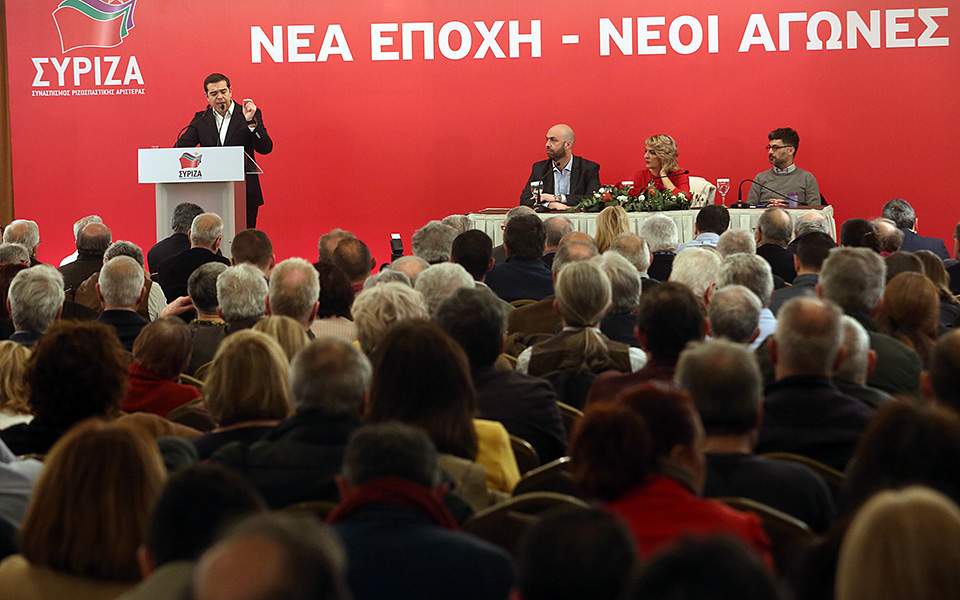Tsipras sees new political divisions ahead of elections

Speaking to members of his ruling SYRIZA party's central committee Sunday, Prime Minister Alexis Tsipras laid out the party's strategy in the runup to May's elections for the European Parliament.
This strategy is two-pronged. First, it will be a fight against the “forces of neoliberalism and the extreme right” as defined by SYRIZA, which aims to tar the main opposition New Democracy party with both epithets.
Second, SYRIZA will be part of a broad “progressive front” that will fight the above-mentioned dark forces.
Center-right New Democracy apears in the polls as the favorite to win the European elections, which will be held simultaneously with the first round of local and regional elections, on May 26.
Although Tsipras has in the past insisted that the government will serve its full four-year term, holding the national election at the latest possible moment, next October, there is still the possibility of staging the election earlier, including in late May, along with the other ones.
So far, the so-called “progressive front” has not materialized at party level, with center-left Kinima Allagis (“Movement for Change” also known as KIN.AL.) and centrist To Potami (“The River”) vehemently denying any desire to align themselves with SYRIZA. Instead, a few politicians from both parties, have drifted, in varying degrees of openness, toward SYRIZA.
This movement is not without its detractors within SYRIZA, especially some of the old leftists who view any alliance with forces to their right with suspicion and were never comfortable with the alliance, now dissolved, with right-populist The Independent Greeks, which had propped the government since January 2015.
There are others, said to include the Finance Minister Euclid Tsakalotos, who still cling to the idea of an alliance between “progressive” parties and do not like the picking up of individuals from these parties, which they view as opportunistic.
But SYRIZA already has a considerable number of politicians from the old socialist PASOK party, who joined a few years ago in protest at that party's embrace of austerity policies. Plus, the bulk of the voters who helped SYRIZA grow from less than 5 percent of the vote in 2009 to over 35 percent in 2015 come from the old socialists. There are, however, still those in SYRIZA who were there in the lean days and who view the newcomers with suspicion.
Tsipras, however, spoke of a “new political reality” which has come about after the Prespes Agreement, which produced fissures inside almost any party, with SYRIZA apparently affected least of all, at least if the parliamentary votes on the deal are to be taken at face value.
This political reality, Tsipras said, “brings clearly new dividing lines and new dilemmas…The political landscape has been realigned and will continue to be realigned,” he said.





